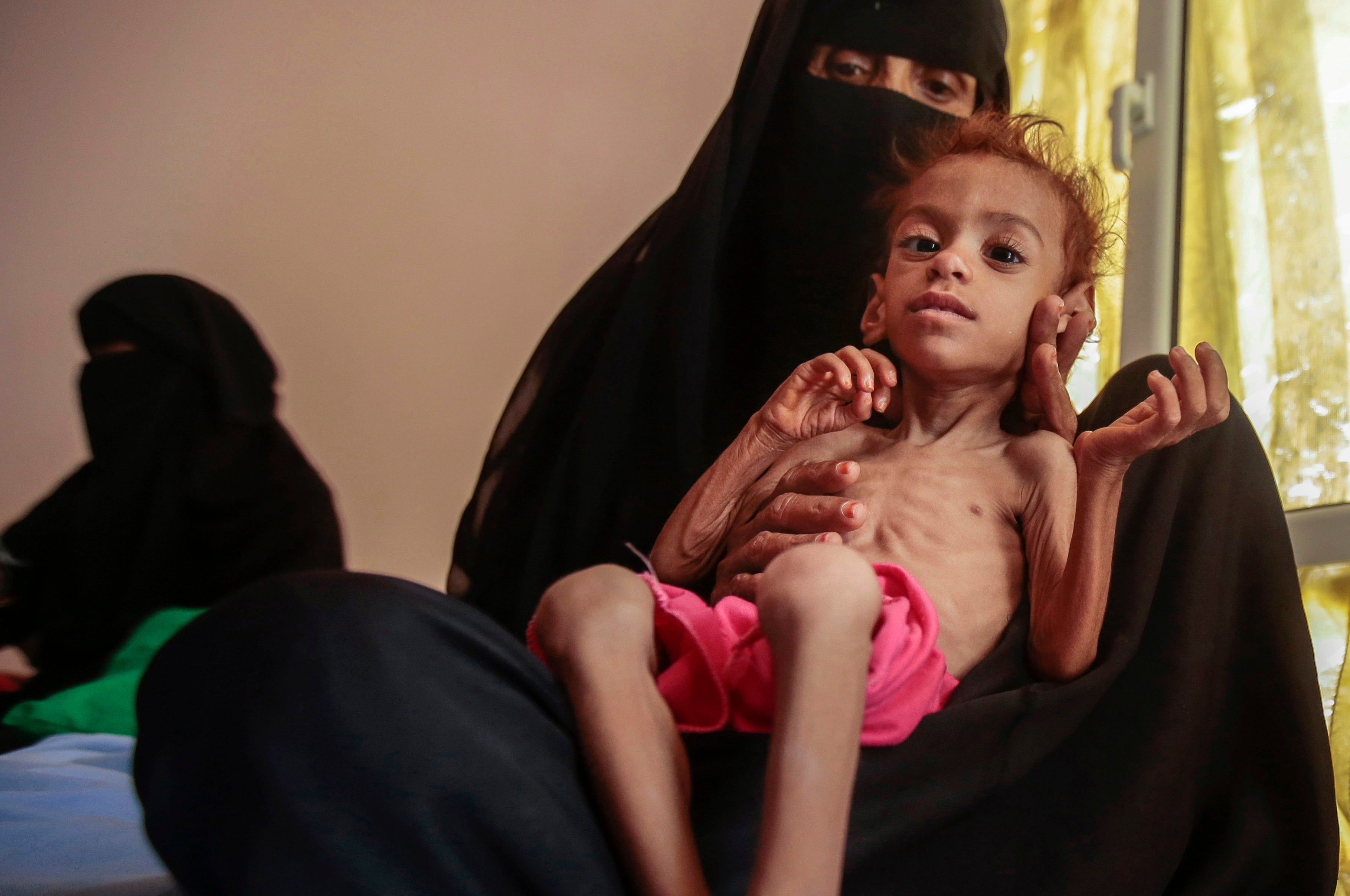UN warns of mass famine in Yemen ahead of donor conference
A U.N. humanitarian agency has warned that more than 16 million people in Yemen would go hungry this year, with already some half a million living in famine-like condition in the conflict-wrecked country

Your support helps us to tell the story
From reproductive rights to climate change to Big Tech, The Independent is on the ground when the story is developing. Whether it's investigating the financials of Elon Musk's pro-Trump PAC or producing our latest documentary, 'The A Word', which shines a light on the American women fighting for reproductive rights, we know how important it is to parse out the facts from the messaging.
At such a critical moment in US history, we need reporters on the ground. Your donation allows us to keep sending journalists to speak to both sides of the story.
The Independent is trusted by Americans across the entire political spectrum. And unlike many other quality news outlets, we choose not to lock Americans out of our reporting and analysis with paywalls. We believe quality journalism should be available to everyone, paid for by those who can afford it.
Your support makes all the difference.A U.N. humanitarian agency on Sunday warned that more than 16 million people in Yemen would go hungry this year, with already some half a million people in the war-torn country living in famine-like conditions.
The U.N. Office for the Coordination of Humanitarian Affairs, or OCHA, said the risk of large-scale famine in the Arab world’s poorest country “has never been more acute,” adding that the years-long conflict, economic decline, and institutional collapse created enormous humanitarian needs in all sectors.
The stark warning comes a day before a pledging conference co-hosted by Sweden and Switzerland. The U.N. Secretary-General Antonio Guterres will appeal for $3.85 billion in relief aid for Yemen this year.
The response to the U.N. appeal is unlikely to meet expectations, given that the coronavirus pandemic and its devastating consequences hit economies around the globe. Wealthy Gulf donors such as Saudi Arabia and the United Arab Emirates, which contributed generously to U.N. appeals in 2018 and 2019, cut back drastically on aid to Yemen last year.
Yemen’s war started in 2014 when the Houthi rebels seized the capital, Sanaa, and much of the country’s north. The Saudi-led, U.S.-backed coalition intervened months later to dislodge the rebels and restore the internationally recognized government. The conflict has killed some 130,000 people and spawned the world’s worst humanitarian disaster.
Monday’s pledging conference comes as the Iranian-backed Houthis renewed their offensive on the central province of Marib, stoking fears of a new humanitarian crisis in a region that hosts the largest displaced population in the country, according to local authorities.
The province, the location of the ancient Great Marib Dam, has served as a sort of haven for around 1 million Yemenis who have fled Houthi offensives since the start of the war, according to U.N. figures.
The rebels have renewed their attacks on the oil-rich province, a holdout against them, but have faced stiff resistance and heavy airstrikes from the Saudi-led coalition. Hundreds, mostly Houthis, have died in the fighting.
OCHA said the fighting in Marib has displaced more than 8,000 civilian people, particularly from the district of Sirwah, which hosts around 30,000 displaced people in at least 14 camps. Sirwah has seen the heaviest fighting, it said.
The agency warned about possible displacement of another 380,000 people if fighting reached the actual city of Marib, capital of the province, where camps for displaced people are already crowded.
In the port city of Hodeida, meanwhile, an overnight explosion hit a residential area in al-Hawal district, killing at least five civilians and wounding three others, the U.N. mission in the strategic city said Sunday.
The mission, known as UNMHA, did not say what caused the explosion or which party was behind it.